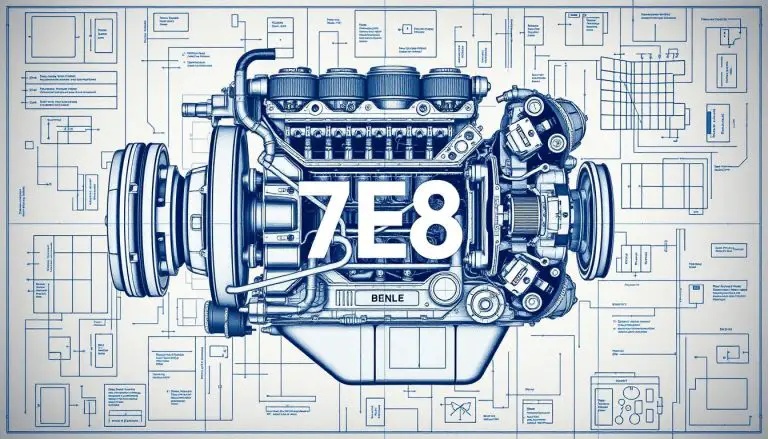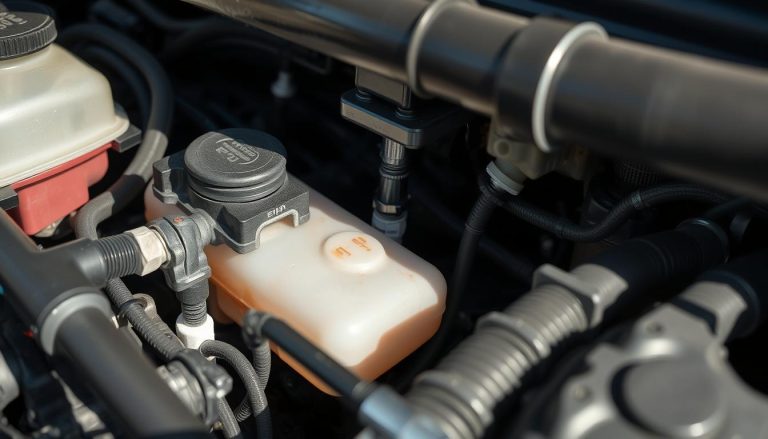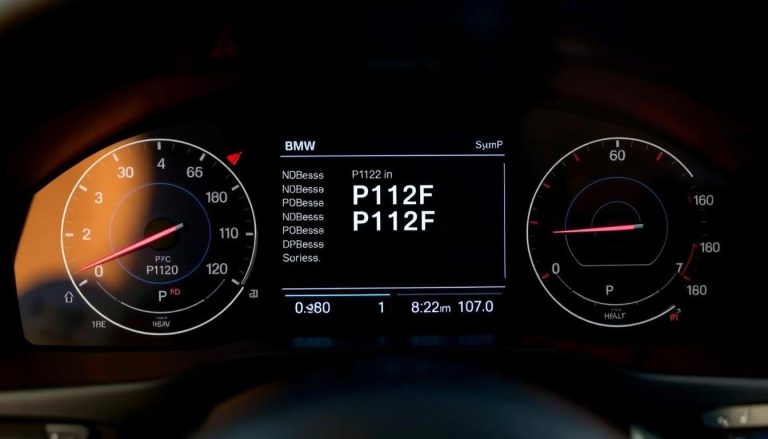The P012A code relates to the turbocharger or supercharger inlet pressure sensor circuit, and it can indicate some underlying issues that need attention.
Let’s dive into what the P012A code really means, its symptoms, potential causes, diagnostic processes, and how to get things back on track.
Key Takeaway
The P012A code is a diagnostic trouble code that signals issues with the turbocharger or supercharger inlet pressure sensor circuit. This component plays a crucial role in regulating your engine’s performance by monitoring air intake pressures.
Ignoring this code could lead to reduced engine efficiency, increased fuel consumption, and potential long-term damage to your vehicle’s turbo system.
It’s important to address it promptly. Knowledge about the symptoms and causes will empower you as a driver, allowing for timely intervention before problems escalate.
Understanding how this error affects your vehicle can save you both time and money down the road. Being proactive is key when dealing with automotive diagnostics like P012A.
What does the P012A code mean?
The P012A code is an OBD-II diagnostic trouble code that indicates a problem with the turbocharger or supercharger inlet pressure sensor circuit. Specifically, it refers to Sensor A, which plays a crucial role in measuring the pressure of the air entering these components.
When your vehicle’s engine control unit detects incorrect voltage levels or signals from this sensor, it triggers the P012A code. This can lead to performance issues as the engine struggles to optimize air intake for efficient combustion.
Understanding this code is essential for diagnosing potential problems within your vehicle’s forced induction system. Addressing it promptly can prevent further complications and maintain optimal engine performance.
What are the common symptoms of a P012A code?
When your vehicle triggers a P012A code, several symptoms may arise that warrant attention :
- Vehicle enters limp mode (Fail safe mode)
- Reduced engine performance. You might notice sluggish acceleration or difficulty maintaining speed.
- The illumination of the check engine light on your dashboard.
- Engine misfiring
- Stalling
- Poor fuel mileage
- Odd noises from the turbocharger or supercharger can occur. These sounds often indicate an issue with airflow and pressure regulation.
What causes a P012A code?
The P012A code can arise from several underlying issues :
- Defective Turbo/supercharger inlet pressure sensor
- Damaged wiring or poor connections within the sensor’s circuit. If the wires are frayed, corroded, or loose, they may send false signals to the engine control unit (ECU).
- Another potential issue could be a faulty inlet pressure sensor itself. Sensors can wear out over time and lose their ability to provide accurate readings.
- Pin/connector problem. (i.e. corrosion, overheating etc.)
- Clogged or damaged air filter
- Software glitches within the ECU can lead to erroneous codes being generated.
How is a P012A code diagnosed?
Diagnosing a P012A code involves several steps. First, a professional mechanic will connect an OBD-II scanner to the vehicle’s diagnostic port. This tool retrieves error codes and provides valuable data about engine performance.
Next, they’ll check for any other related trouble codes. Multiple issues can sometimes arise together, offering clues to the underlying problem.
Visual inspections are crucial; mechanics often look for damaged wiring or corroded connectors linked to the turbocharger or supercharger inlet pressure sensor. Any obvious signs of wear can lead directly to identifying faults.
After that, performing tests on the sensors is essential. Mechanics may measure voltage and resistance levels while monitoring real-time data as they run the engine under various conditions.
Combining these methods helps pinpoint whether it’s indeed a faulty sensor, electrical issue, or another contributing factor causing the P012A code.
Is the P012A code specific to certain car makes or models?
The P012A code is not limited to specific car makes or models. It can appear in a wide range of vehicles equipped with turbocharged or supercharged engines.
Manufacturers such as Ford, Chevrolet, Honda, and Volkswagen may all experience this issue. The design and technology behind the inlet pressure sensor are similar across different brands.
That said, some models might be more prone to triggering this code due to their unique engineering or age. It’s essential for vehicle owners to refer to their manufacturer’s service manual for insights related to their particular model.
Understanding your vehicle’s history can also provide insight into whether you’re likely to encounter the P012A code again in the future. Always stay informed about common issues within your make and model for better maintenance practices.
Can I continue driving with the P012A code?
Driving with the P012A code can be a tricky decision. This code indicates an issue with your turbocharger or supercharger inlet pressure sensor circuit, which is crucial for optimal engine performance.
If this problem arises, you might notice decreased power and efficiency. The vehicle may not respond as it normally would. In some cases, continuing to drive could lead to further engine complications.
While it’s tempting to ignore warning lights for convenience, doing so can exacerbate the underlying issue. Ignoring the P012A code could result in more expensive repairs down the line.
It’s advisable to have your vehicle checked as soon as possible. Taking preventative measures now can save you from being stranded later on or facing costly repairs that could have been avoided.
How do I fix a P012A – Turbocharger/Supercharger Inlet Pressure Sensor A Circuit ?
Fixing a P012A code involves several steps. Start by inspecting the turbocharger or supercharger inlet pressure sensor itself. Look for any visible damage, corrosion, or loose connections in the wiring.
If everything seems intact, you may need to test the sensor’s voltage and resistance using a multimeter. Consult your vehicle’s service manual for specific values to ensure it’s functioning properly.
Should the sensor fail these tests, replacing it is often necessary. Ensure that you use an OEM part for reliability.
Once replaced, clear any diagnostic trouble codes from your car’s computer with a scanner. Then take your vehicle for a short drive to confirm if the check engine light remains off.
If problems persist after this process, consider checking related components like hoses and vacuum lines that could affect performance.
How much does it cost to fix a P012A code?
Repairing a P012A code can vary significantly in cost. Typically, you might spend anywhere from $100 to $1,200. The price largely depends on the underlying issue.
If it’s just a faulty sensor, replacing it could be relatively inexpensive—a few hundred dollars at most. However, if there are additional problems like wiring issues or turbocharger damage, costs can escalate quickly.
Labor charges also contribute to the total expense. Mechanics may charge between $75 and $150 per hour depending on location and expertise.
It’s always wise to get multiple quotes before proceeding with repairs. This way, you can ensure that you’re not overspending while still receiving quality service for your vehicle’s needs.
Are there any other codes that may be related to a P012A code?
When dealing with a P012A code, it’s essential to be aware of related trouble codes that may arise. Other DTCs (Diagnostic Trouble Codes) can emerge from similar issues within the turbocharger or supercharger system. Some common codes you might encounter include:
– **P0101**: Mass Air Flow Sensor Circuit Range/Performance Problem
– **P0234**: Turbo/Super Charger Overboost Condition
– **P0299**: Turbocharger/Supercharger “A” Underboost Condition
Each of these codes indicates specific problems tied to air intake and boost pressure management in your vehicle’s engine. If you see multiple diagnostic trouble codes, it could suggest a broader issue affecting performance.
Understanding these related codes allows for better diagnosis and more thorough repairs. Addressing all potential issues ensures that your vehicle runs efficiently and effectively while preventing further complications down the line. Always consult with a professional mechanic if you’re unsure about any symptoms or repairs needed for your car’s systems involving the P012A code and its relatives.


